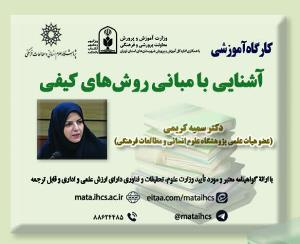مبانی فرازمانی بودن حدود و احکام الهی با تمرکز بر ادله و آموزه های قرآنی
آرشیو
چکیده
اجرای حدود و احکام الهی در دوران های مختلف از مسائل بحث برانگیز در فقه اسلامی بوده است. محل منازعه در میان فقهای متقدم بیشتر حول محور اختصاص یا عدم اختصاص به متصدی معصوم یا شرط عصمت یا عدم شرطیت آن برای اجرا بوده است. در دوران معاصر با مطرح شدن دو مقوله مجزا یعنی «دانش هرمونیتک» و «حقوق بشر» این بحث نیز تحت تأثیر قرار گرفته است؛ از یک سو محور بحث ها از اختصاص به متصدی معصوم به «اختصاص به عصر بعثت» تغییر یافته است و از دیگر سو به اقتضای طرح مباحث حقوق بشردوستانه، دغدغه جلوگیری از وهن اسلام نیز به میدان دیگری برای سخن در خصوص عدم اجرای حدود تبدیل شده است. این نوشتار با روشی تحلیلی- انتقادی در صدد است با تمسک به برخی آموزه ها و دلایل مستنبط از قرآن کریم، در راستای اثبات فرازمانی بودن حدود و احکام الهی، دلایلی فراتر از اطلاق و عموم آیات را که جمهور فقها بدان پرداخته اند، مطرح نماید. یافته های این پژوهش نشان می دهد، ادله مخالفان فرازمانی بودن حدود اگر با سنجه ی قرآن کریم سنجیده شود، غیر قابل اعتنا است.The Principles of Transcendence of Divine Punishments with a Focus on Qur'anic Arguments and Teachings
The execution of divine punishments in different periods has been a controversial issue in Islamic jurisprudence. The point of contention among the earlier jurists has been mostly about the axis of assignment or non-assignment to the infallible custodian or the condition of infallibility or its unconditionality for execution. In the contemporary era, with the introduction of two separate categories, namely "hermeneutic knowledge" and "human rights", this debate has also been affected; On the one hand, the focus of the debate has shifted from being assigned to an infallible custodian to being "assigned to the age of resurrection", and on the other hand, due to the need to raise humanitarian rights issues, the concern of preventing the weakness of Islam has become another field for talking about non- execution of the punishments. This article, with an analytical-critical method, intends to present some reasons beyond the scope and generality of the verses that the Republic of jurists have dealt with, in order to prove the transcendence of divine punishments, relying on some teachings and reasons related to the Holy Quran. The findings of this study show that the arguments of the opponents of the transcendence of punishments are insignificant if measured by the measure of the Holy Quran







